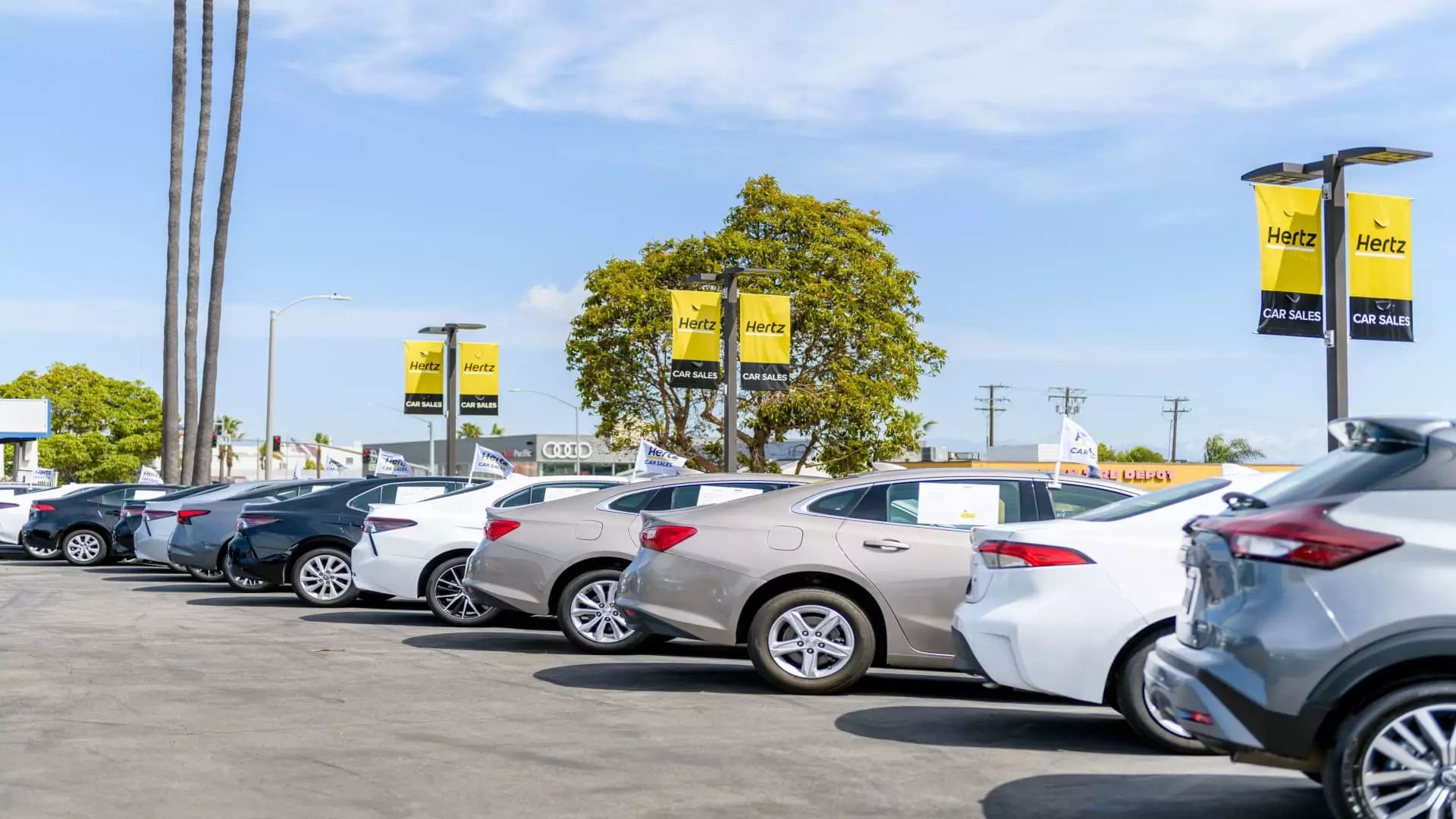Hertz’s recent announcement to sell preowned vehicles via Amazon Autos signals a seismic shift in how car rental companies approach retail and consumer engagement. Historically rooted in physical locations and direct dealership sales, Hertz is now attempting to break free from conventional paradigms, leveraging the vast reach of an e-commerce platform to transition into the digital-first realm. While this move seems progressive on the surface, it raises critical questions about the true efficacy and potential pitfalls of such a strategy.
The partnership empowers consumers to browse, select, and complete their vehicle purchase via Amazon’s streamlined interface, integrating the convenience of online shopping with Hertz’s trusted brand. This approach is undeniably aligned with modern consumer preferences, which favor seamless digital experiences. However, the question remains: can a traditional car rental giant truly replicate the intimacy and tactile assurance offered by in-person dealership visits?
Furthermore, this venture exemplifies a broader trend where tech giants and legacy automakers alike seek to monopolize the digital automotive marketplace. While Amazon has historically dominated markets in electronics and everyday goods, expanding into vehicle sales is an entirely different ballgame. The complexities of financing, vehicle inspection, and after-sales service mean that merely offering cars online doesn’t guarantee customer satisfaction or long-term loyalty. The real challenge will be whether Hertz can translate digital convenience into trust and confidence in a market where consumers are often wary of buying vehicles sight unseen.
Strategic Risks and the Potential for Market Disruption
Hertz’s foray into online car sales, though seemingly innovative, may risk overstretching the company’s core competencies. Car rentals and used car sales are fundamentally different business models that require distinct operational strategies and customer engagement tactics. While leasing or renting a vehicle involves short-term commitments, purchasing a used car is a substantial financial decision packed with emotional and financial considerations that online platforms often fail to address adequately.
Critically, Hertz’s expansion into the used auto market could dilute its brand if not executed flawlessly. The company has experienced turbulent times, including bankruptcy during the pandemic and an overly ambitious, yet failed, EV strategy. Entering the used vehicle sales online space might seem like a strategic move to diversify revenue streams and reduce reliance on rentals, but it could also expose Hertz to market volatilities associated with used car prices, inventory management, and consumer confidence—factors that are less predictable than rental revenues.
Furthermore, leveraging a platform like Amazon Autos accentuates the increasing commodification of the automotive buying experience, where the emotional component of car ownership is sacrificed at the altar of digital convenience. Consumers might welcome the simplicity, but they also yearn for a personalized touch—something a purely online transaction might struggle to provide. This gap could lead to customer dissatisfaction, especially if issues arise post-purchase or if expectations set by the online experience do not materialize in reality.
A Center-Right Approach with Social Implications
From a center-leaning liberal perspective, this strategic pivot brings both opportunities and concerns. On one hand, making used cars more accessible aligns with the goal of expanding mobility options and supporting economic participation. Digital platforms democratize access, potentially empowering consumers who might have been excluded by traditional dealership models or geographic barriers. It represents a push toward innovation that prioritizes consumer choice and convenience.
However, there are societal implications to consider. As big corporations like Hertz and Amazon consolidate more of the vehicle purchasing process into their ecosystems, issues of market fairness, small local dealerships, and consumer protections come to the forefront. The move risks further marginalizing small businesses without the scale to compete online, possibly leading to less diverse options for consumers in the long run.
Moreover, this transition could influence employment within local auto sales and service sectors. As digital sales dominate, traditional jobs associated with in-person sales, inspection, and service might diminish, raising questions about the social responsibility of these corporate giants in supporting community economies. While efficiency and innovation are desirable, they should not come at the cost of social equity and local enterprise sustainability.
Hertz’s partnership with Amazon Autos exemplifies boldness in reshaping automotive retail, yet it walks a fine line between innovation and risk. While the potential for increased reach and profit is evident, the real challenge lies in managing consumer trust and operational complexity. This move underscores the importance of blending technological advancement with a nuanced understanding of customer needs and societal impacts—an endeavor that requires humility, strategic oversight, and a commitment to equitable growth. As consumers and communities navigate this evolving landscape, the hope should be that such initiatives do not merely serve corporate interests but also foster responsible, inclusive mobility solutions.


Leave a Reply